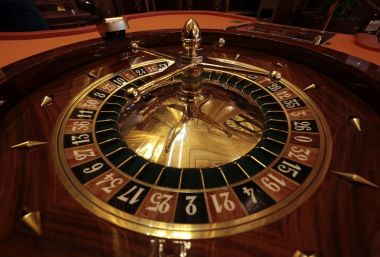Should we gamble on God? Pascal's Wager says it's worth it

Blaise Pascal was one of those geniuses we don't seem to get any more. Not only was he a mathematician, scientist and inventor, he was also a philosopher and theologian. He died on this day in 1662, yet his work remains the subject of discussion well into the 21st Century.
His most famous contribution to the debate over God came to be known as Pascal's Wager. It goes something like this:
God either exists or doesn't. We need to place a wager one way or the other. If God does exist, it will be infinitely worthwhile to have bet on that outcome. If God doesn't exist then it won't matter anyway. Given these propositions, we should wager that God exists.
The force of Pascal's argument here is obvious. He clearly shows why making the bet that God exists is a rational way to behave. If God is offering us a shot at eternal life (as well as transformation in the present) then it makes perfect sense to trust this offer, put our chips down on it and live our lives in the light of that.
Pascal himself offered an explanation. "Belief is a wise wager," he said. "Granted that faith cannot be proved, what harm will come to you if you gamble on its truth and it proves false? If you gain, you gain all; if you lose, you lose nothing. Wager, then, without hesitation, that He exists."
Because Pascal thought it was impossible to prove God, he offered the wager as an explanation of the decision that every human being has to make. We can choose to believe in God or not. Under those circumstances, choosing God is wise.
However, since the 17th Century and right up to the present day, Pascal's Wager has been subjected to extended critique.
Within a generation of Pascal, he was being ridiculed by his countryman Voltaire, who said, "This article seems a little indecent and puerile: the idea of a game, and of loss and gain, does not befit the gravity of the subject."
This was only the first in a barrage of criticisms the wager has faced. Indeed today there is a whole website called rejectionofpascalswager.net. This site marshals generations worth of arguments to conclude: "On both intellectual and moral grounds the only course for a person to take is the rejection of Pascal's Wager."
According to a contemporary supporter of a version of the wager, Michael Rota, criticism of the wager comes in four forms: "(1) believing in God on pragmatic grounds is immoral because we should only believe something on the basis of evidence; (2) committing to God for the sake of future benefits is selfish; (3) the existence of other religions invalidates Pascal's argument; and (4) Pascal's approach to religion is inconsistent with Christian doctrine itself."
Contemporary defenders of a form of the wager admit that Pascal's argument does need some updating. Kevin Moore, whose book Untrumpable is about his alternate version of the wager, says: "Pascal overplayed his hand by going beyond the very bounds that he set for himself, namely, the bounds of uncertainty." But, he says, there is still value in Pascal. "I believe that our uncertainty about the afterlife ought to direct us (rationally) to live in a certain sort of way."
Pascal's original wager does have its contemporary defenders, too. Catholic philosopher Peter Kreeft is among them. "What must be given up to wager that God exists?" he asks. "Whatever it is, it is only finite, and it is most reasonable to wager something finite on the chance of winning an infinite prize."
Pascal's wager is an enduring argument, and some people claim to have come to faith because of it. Yet it has many critics and isn't a knock-down argument. A recent article on the wager said: "This is not an argument for the actual existence of God. Pascal states that as to the question of the existence or non-existence of God, 'Reason can decide nothing here.' Instead, it's an argument for why, regardless of existence, one should believe in God."
This is a crucial difference. As believers, we mustn't over claim for the tools we have at our disposal. Even if the wager is successful, it only shows theism to be worth betting on, rather than Christian faith. Pascal's Wager may not be persuasive to many. But it may cause someone to stop and think. In contemporary America and Europe, where atheism seems to be the default for many or even most, that is not to be sniffed at.











